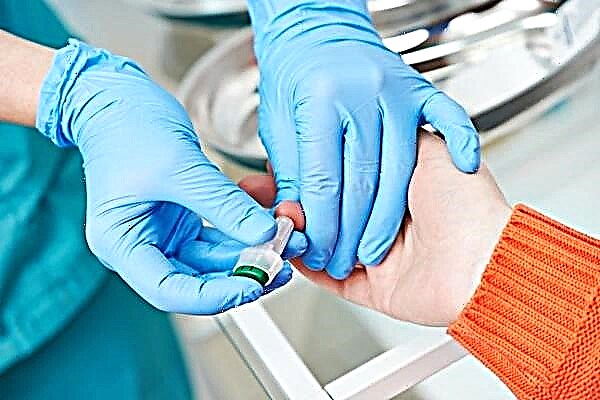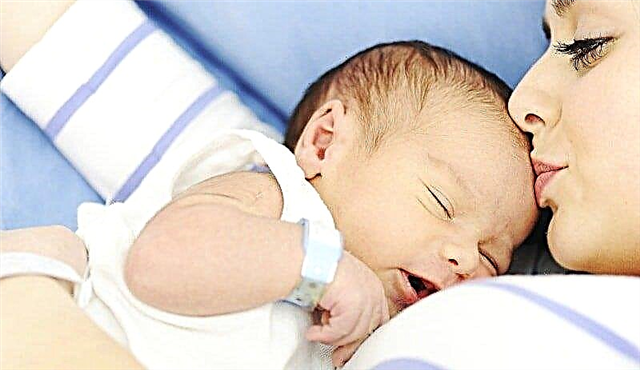Children of any age can get sick. The doctor often prescribes medicines for babies in different forms: tablets, drops, syrups and suspensions. If the child is of a conscious age, it can be easily persuaded to drink the drug. With babies, everything is much more complicated. However, you can give your baby medicine. The main thing is to know how to do it right.

Giving a baby medicine is not easy
How to prepare a baby
Before giving a pill to an infant, the baby must be prepared for this. Before giving pills to a newborn, parents should make sure that the baby is actively awake - a sleeping baby can easily choke on the medicine. Also, parents need:
- Pre-feed the baby and let him spit up if the medicine needs to be drunk after eating;
- Wash your hands thoroughly with soap and a baby teaspoon;
- Prepare water in a nice small cup or bottle so that the child can drink the medicine;
- In a calm, gentle voice, tell the child to take a pill.

The baby needs to be prepared to take the pill
Before you measure a portion of the medicine for the baby, you must definitely look at the expiration date of the drug, and also carefully read the instructions. Many modern medicines for children are dosed not by age, but by the weight of the baby. In this case, it is very important to measure out the right amount of the drug in order to prevent an overdose or, conversely, reduce the dose.
You can give your baby only those medicines on which the name and expiration date are clearly visible. Therefore, so that there are no problems, young parents are advised to store all drugs in pharmacy cardboard packages. If any remedy has raised doubts, in no case should it be given to a baby.
How to give suspension or syrup
If parents do not know how to give pills to a baby, in this case a suspension or sweet syrup can become a lifesaver. For for the baby to receive the recommended dose of the drug without problems, it is necessary:
- Shake the suspension or syrup bottle before use;
- Carefully remove the plastic syringe (or pipette) attached to it from the box;
- Insert it into the medicine bottle and fill the syringe until it dividing correctly;
- Put the baby on his lap and begin carefully, gradually pouring liquid from a syringe into his mouth.
Do not be afraid that your child might not like this way of taking medication. Most manufacturers make baby syrups and suspensions taste good. However, such dosage forms have one serious drawback: due to the large amount of sweeteners and artificial flavors in the composition, the drug can cause an allergic reaction in the baby.

Modern medicines are often sweet
Attention! If the baby spat out or vomited part of the dose, in no case should the child be given the medicine again, as a dangerous overdose may occur. In this case, you need to calmly wait for the next medication intake and this time control the baby so that he drinks the medicine to the end.
How to give a baby a pill correctly
Before giving the baby a hard tablet, it must be ground into powder. This is easiest to do with two teaspoons. A tablet is placed in one spoon, and the other is ground to a powdery state. After that, you can already think about how to give bitter medicine to a baby. For this you need:
- Put a little water in a spoon with a tablet;
- Gently bring the spoon to the child's mouth;
- Further, one adult distracts the baby, the other - at this time, gently carries a spoon in his mouth, if necessary, the baby's jaws are carefully opened;
- After that, the baby is given a little water or milk to wash down the medicine.
If everything is done correctly, the child will not gag, he will easily swallow the powder and will not feel the slightest discomfort.

The child should take a pill with water
How to give bitter medicine
The local pediatrician will always tell you how to give pills to an infant. Parents often do not know how to give a newborn medicine if the medicine tastes unpleasant or bitter. The easiest way is to crush a tablet into a powder and mix it with something sweet, for example:
- Granulated sugar;
- Honey;
- Jam;
- Jam.
However, this can only be done if the child is not allergic. Sugary foods often trigger allergic reactions. If this option is not suitable, you can dissolve the medicine in a large amount of water, then the bitter taste will not be felt so strongly.
Attention! Some parents, so that the baby does not feel the bitter taste, give a tablet crushed into powder along with fruit juice. In no case should you do this! It is known that the combination of orange or grapefruit juice with most medicines for children and adults can be fatal.
Useful Tips
For treatment to be successful, parents need to feel calm and confident. If the mom is nervous about giving the baby the medicine, the baby will feel the anxiety and refuse to take the pill.
It should also be remembered that it is strictly forbidden to give any medicine to children without the consent of a doctor. This applies not only to tablets, but also vitamins, herbal decoctions and infusions.
If the doctor has prescribed an antibacterial medicine for the baby, it is necessary to strictly adhere to the entire course of admission until the very end. You cannot cancel the medicine on your own, even if the child is much better. Otherwise, the bacteria will develop sensitivity to the antibiotic, and in the future this medicine will no longer have the desired effect.
If there are two variants of the same drug at home (for example, Nurofen for children and for adults), you should not give the child the adult medicine at a dosage reduced by the eye. Preparations for children and adults may differ in composition.
For convenience, it is advisable to make two first aid kits at home: for adults and a separate one for the baby. In addition to children's medicines, you should put brilliant green, bandages and a plaster there, as well as cosmetics for newborns to perform daily hygiene procedures (baby cream, massage oil), vitamins. Medicinal syringes and measuring spoons from suspensions and syrups should be stored together with medications so as not to lose important accessories.
If the doctor has prescribed an antibiotic for the baby inside, and the child categorically refuses to drink the syrup (suspension) or reacts to the medicine with a gag reflex, it is best to ask the pediatrician to replace this method of taking injections. Injections are good because the medicine will immediately enter the body, bypassing the digestive tract, so the child does not have indigestion and dysbiosis.



